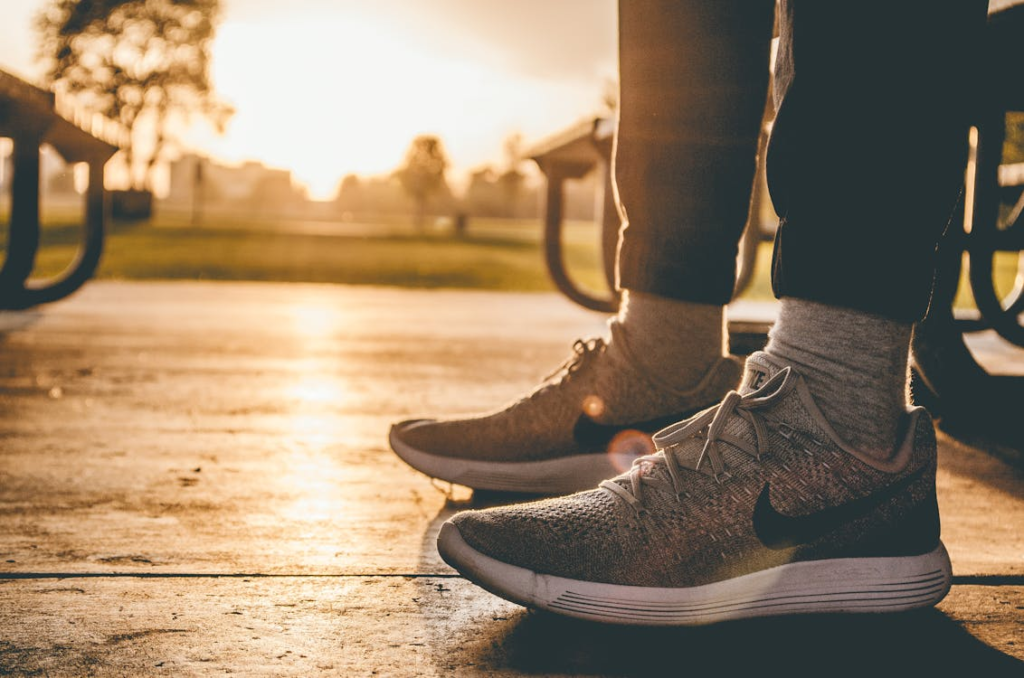Running is a great way to stay healthy, but you need good shoes to keep your feet and body safe. Just like toys wear out, running shoes wear out too. But how do you know when to get new ones? This guide will help you understand when it’s time to buy new running shoes, what to look for, and how to make your shoes last longer.
Why Do You Need to Change Your Running Shoes?
Running shoes are made to give your feet a soft place to land and to keep your feet steady. Over time, the soft parts in the shoes get squished and the shoes lose their bounce. When this happens, your feet don’t get the same protection, and you might start to feel pain or even get hurt. Getting new shoes regularly helps you stay safe while running.

What Decides How Long Your Running Shoes Last?
How long your running shoes last depends on a few things:
- How Much You Run: Most people should change their running shoes after 300-500 miles. Some people might need to change them sooner if they run a lot, while others can wait longer if they run less.
- Where You Run: Running on hard or rough surfaces can make your shoes wear out faster. Smooth surfaces like a treadmill or sidewalk are gentler on your shoes.
- How You Run: If your feet roll inward or outward when you run, your shoes might wear out unevenly. This means you might need new shoes sooner.
- The Quality of the Shoes: Some shoes are made better than others. Good quality shoes might last longer, even though they cost more.
- How Often You Use Them: If you run every day, your shoes will wear out faster. Even if you don’t run a lot, shoes can still wear out just from getting old.
- Your Weight: Heavier people might squish the soft parts of the shoes faster, so they might need to change shoes more often.
Signs That You Need New Running Shoes
You might not always count how many miles you’ve run, so here are some easy ways to tell if your shoes need replacing:
- Worn Out Bottoms: If the bottoms of your shoes look smooth or you see holes, it’s time for new ones.
- Less Bounce: If your shoes don’t feel as springy or comfy, the soft parts might be squished down. This means your shoes aren’t as good at protecting your feet anymore.
- Sore Feet: If your feet, ankles, or knees start to hurt when they didn’t before, it could be because your shoes aren’t doing their job.
- Wobbly Shoes: If your shoes feel loose or your ankles roll a lot, the support in your shoes might be worn out.
- Bad Smell: If your shoes smell bad, they might be full of sweat and bacteria, which can also make the shoes wear out faster.
How to Make Your Running Shoes Last Longer
While it’s important to get new shoes when you need them, here are some tips to help your shoes last longer:
- Switch Between Shoes: If you run a lot, try using more than one pair of running shoes. This gives each pair time to rest and dry out between runs.
- Don’t Wear Them for Everything: If you use your running shoes for other things like walking or playing, they will wear out faster. Try to save them just for running.
- Store Them Properly: Keep your shoes in a cool, dry place. Don’t leave them in the sun or near heat, because this can make the materials break down faster.
- Use Special Inserts: If your feet roll inward or outward, special inserts can help protect your shoes from wearing out too quickly.
- Keep Track of Miles: Use a notebook or an app to write down how many miles you run. This will help you know when your shoes are getting close to needing a change.
When to Replace Running Shoes
| Shoe Type | Miles Before New Shoes Needed |
|---|---|
| Regular Running Shoes | 300-500 miles |
| Trail Running Shoes | 200-300 miles |
| Lightweight/Minimalist Shoes | 200-300 miles |
| Racing Shoes | 150-300 miles |
| Supportive Running Shoes | 300-500 miles |
Tips to Make Shoes Last Longer
| Tip | What It Does |
|---|---|
| Use more than one pair | Gives shoes time to rest |
| Don’t wear for other things | Prevents extra wear |
| Store in a cool, dry place | Stops materials from breaking |
| Use inserts | Protects shoes from uneven wear |
| Track your running miles | Helps you know when to replace |
How Often Should You Get New Running Shoes?
Running is a great way to stay healthy, but you need good shoes to keep your feet and body safe. Just like toys wear out, running shoes wear out too. But how do you know when to get new ones? This guide will help you understand when it’s time to buy new running shoes, what to look for, and how to make your shoes last longer.
Why Do You Need to Change Your Running Shoes?
Running shoes are made to give your feet a soft place to land and to keep your feet steady. Over time, the soft parts in the shoes get squished and the shoes lose their bounce. When this happens, your feet don’t get the same protection, and you might start to feel pain or even get hurt. Getting new shoes regularly helps you stay safe while running.

What Decides How Long Your Running Shoes Last?
How long your running shoes last depends on a few things:
- How Much You Run: Most people should change their running shoes after 300-500 miles. Some people might need to change them sooner if they run a lot, while others can wait longer if they run less.
- Where You Run: Running on hard or rough surfaces can make your shoes wear out faster. Smooth surfaces like a treadmill or sidewalk are gentler on your shoes.
- How You Run: If your feet roll inward or outward when you run, your shoes might wear out unevenly. This means you might need new shoes sooner.
- The Quality of the Shoes: Some shoes are made better than others. Good quality shoes might last longer, even though they cost more.
- How Often You Use Them: If you run every day, your shoes will wear out faster. Even if you don’t run a lot, shoes can still wear out just from getting old.
- Your Weight: Heavier people might squish the soft parts of the shoes faster, so they might need to change shoes more often.
Signs That You Need New Running Shoes
You might not always count how many miles you’ve run, so here are some easy ways to tell if your shoes need replacing:
- Worn Out Bottoms: If the bottoms of your shoes look smooth or you see holes, it’s time for new ones.
- Less Bounce: If your shoes don’t feel as springy or comfy, the soft parts might be squished down. This means your shoes aren’t as good at protecting your feet anymore.
- Sore Feet: If your feet, ankles, or knees start to hurt when they didn’t before, it could be because your shoes aren’t doing their job.
- Wobbly Shoes: If your shoes feel loose or your ankles roll a lot, the support in your shoes might be worn out.
- Bad Smell: If your shoes smell bad, they might be full of sweat and bacteria, which can also make the shoes wear out faster.
How to Make Your Running Shoes Last Longer
While it’s important to get new shoes when you need them, here are some tips to help your shoes last longer:
- Switch Between Shoes: If you run a lot, try using more than one pair of running shoes. This gives each pair time to rest and dry out between runs.
- Don’t Wear Them for Everything: If you use your running shoes for other things like walking or playing, they will wear out faster. Try to save them just for running.
- Store Them Properly: Keep your shoes in a cool, dry place. Don’t leave them in the sun or near heat, because this can make the materials break down faster.
- Use Special Inserts: If your feet roll inward or outward, special inserts can help protect your shoes from wearing out too quickly.
- Keep Track of Miles: Use a notebook or an app to write down how many miles you run. This will help you know when your shoes are getting close to needing a change.
FAQs
1. How can I tell if my running shoes are old?
Look at the bottoms of your shoes. If they are worn out, feel less bouncy, or your feet start to hurt, it’s probably time for new shoes.
2. Is it bad to keep running in old shoes?
Yes, old shoes don’t protect your feet as well and can make you hurt. It’s best to get new ones when your old ones wear out.
3. How do I keep track of how far I’ve run in my shoes?
You can use a running app or write it down in a notebook. Many apps let you enter your shoes and will track the miles for you.
4. Do expensive shoes last longer?
Sometimes! Good quality shoes can last longer, but how you run, where you run, and how much you weigh also make a difference.
5. Can I wash my running shoes?
Yes, but be careful. Washing them by hand and letting them dry naturally is best. Don’t use a washing machine or dryer, because the heat can damage them.
Also READ: Does a Premium Running Shoe Matter? Know the truth
Conclusion
Knowing when to get new running shoes is important for keeping your feet happy and healthy. By watching how many miles you run, looking for signs of wear, and taking care of your shoes, you can make sure you’re always running in shoes that keep you safe. Remember, getting new shoes when you need them is a good way to take care of yourself and enjoy running!
